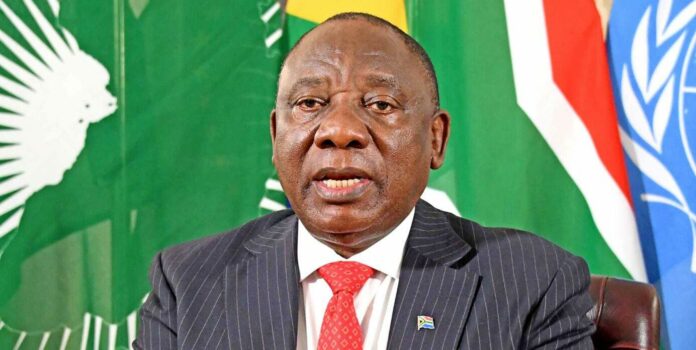“In our view it is important to listen very carefully to what both countries have to say and tomorrow we are now going to listen to President Putin.”
These are the words of President Cyril Ramaphosa right at the centre of the global stage, seeking, with his African leaders and colleagues, to broker peace in a foreign land.
He was briefing the media about the talks he had with the leader of Ukraine, President Volodymyr Zelensky, where he pleaded for the de-escalation of the bloody conflict between Russia and Ukraine.
The following day, which would have been yesterday, he would have met with the Russian leader, Vladimir Putin, repeating the words of peace: “This war must be settled and there should be peace through negotiations.”
The visit by Ramaphosa comes at the time of heightened tensions, where his life and safety, and those of other African leaders, and his entourage, could have been under threat and in real danger. As we understand it, at some stage during his visit on Friday, because of air raids and other forms of bombardment, Ramaphosa had to take refuge in a shelter, to evade any form of threat to his life or security. This, on the part of Ramaphosa, is not to seek martyrdom, but it is a reflection on the extent to which the war has escalated. Mayhem and great uncertainty pervade the air.
In the town of Bucha, outside Kyiv, a city of horror, massacre is the order of the day. Ramaphosa and his African colleagues visited the area to get first-hand experience, and a sense of how ordinary people are affected by the war.
Says Ramaphosa about his first-hand experience in the war-torn zone: “Today as we were here, we heard of missile strikes and those types of hostilities are no good for fostering peace… we argue that there must be de-escalation on both sides.”
South Africa, in the broader scale of things, is a tiny, little country facing its own internal problems of poverty, joblessness, slagging economy incapable of absorbing millions of unemployed citizens, broken infrastructure, among other deficiencies. Yet, there will always be that human instinct inscribed for us in the ancient literature, and in our hearts, that we are our brother’s or sister’s keepers.
Geopolitics is about international political relations, and how, because of trade and other political and economic relations or considerations, one country may not say, “it is not my business”.
Ramaphosa understands this game very well. He was chief negotiator during our country’s political breakthrough, negotiating a political settlement that would lead to the April 27, 1994 miracle – the national elections that saw Nelson Mandela become South Africa’s first democratically elected president.
We can engage in polemics until the cows come home. If there is no peace between Russia and Ukraine, there will be destabilisation of political and economic factors, including skyrocketing increases in food and oil prices, and the poor countries of the world will suffer more.
We congratulate Ramaphosa for his courageous stance. The world ought to be indebted to him. We trust the United Nations, not the US, will lead these two great nations to a peaceful resolution.
Follow @SundayWorldZA on Twitter and @sundayworldza on Instagram, or like our Facebook Page, Sunday World, by clicking here for the latest breaking news in South Africa



